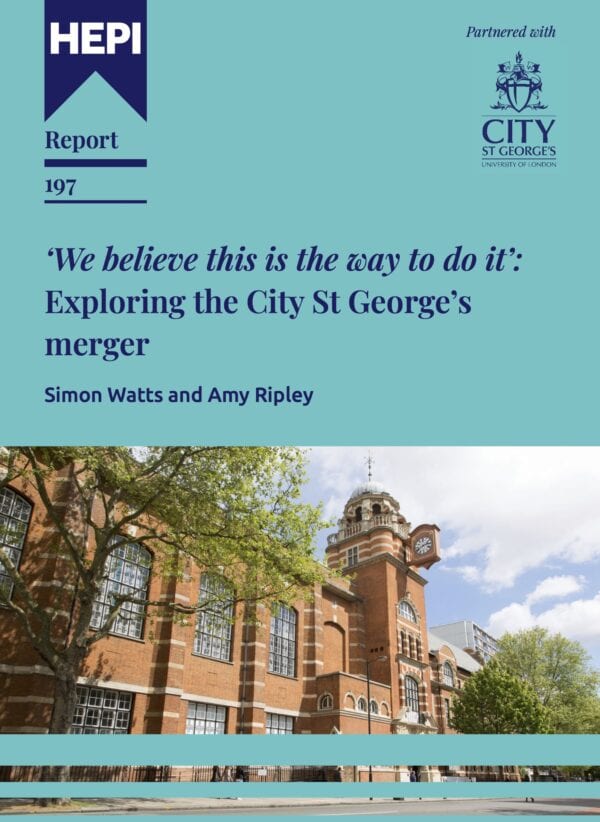English language requirements under the microscope: Do you have what it takes to meet your university’s English language entry requirements for international students?
By Tamsin Thomas, Senior Strategic Engagement Manager, Duolingo English Test.
The English language proficiency of international students is once again under the microscope. Heightened scrutiny is being driven by media coverage of international admissions, including The Times and BBC Radio 4’s File on 4, as well as the new immigration white paper. The Home Office is currently tendering for an English test for immigration purposes and has also undertaken a review of university English testing arrangements.
There are growing questions about how UK universities assess English proficiency, which tests are accepted, and what governance arrangements are in place to ensure that students have the level of English they need to succeed. These are valid and necessary discussions.
But it’s also true that much of the debate is happening without lived experience. Most contributors to this conversation — from media commentators to admissions professionals and policymakers — have never sat a high-stakes English language test themselves, certainly not as an entry requirement for studying in another country. That gap matters.
How Do International Students Currently Meet English Language Requirements?
UK universities have built robust and nuanced systems for assessing English proficiency, shaped by decades of global engagement. These typically fall into three broad categories:
- Secondary school qualifications: Many countries offer high school-level English that meets UK university entry standards. For example, iGCSEs, the IB, Hong Kong’s HKDSE, or Germany’s Abitur are often accepted without additional testing.
- Standardised English proficiency tests: Many international students – especially those from countries where English is not the primary language of instruction – take tests like IELTS, TOEFL, or the Duolingo English Test (DET) in addition to their school diplomas.
- Evidence of prior study in English: If a student has completed at least three years of education in English at the tertiary level, this can meet requirements under a “Medium of Instruction” policy.
In countries like India and Nigeria, the situation is more complex. Both operate parallel education systems – some in English, others in regional languages. Students with strong English scores in the Indian Standard XII (CBSE, ISC) or the West African WAEC are often accepted without further testing. Graduates of other boards may need to take a test.
These frameworks are diverse by design – reflecting the deep, often country-specific, relationships and expertise UK universities have developed over time.
While the media sometimes focuses on the small minority of international students whose English may fall short, it’s worth remembering that perfection is not the benchmark. Most international students meet entry requirements – and universities have systems in place to support language development throughout the degree. After all, only a small percentage of UK students get a Grade 9 in GCSE English, and developing academic English skills is part of what universities train students to do. Language proficiency exists on a spectrum – the question isn’t whether students are fluent on entry, but whether they have the foundation to succeed.
What Happens When a New Test Enters the Market?
As a relatively new entrant to this space, the Duolingo English Test – now accepted by over 40 UK universities – has seen firsthand how institutions evaluate and onboard new tests.
Typically, the process reflects a practical need to expand the range of tests, paired with a careful scrutiny process – usually via committee:
- Recruitment teams identify a test that meets student demand or addresses market access barriers.
- Admissions teams assess delivery method, validity, and the external evidence base.
- English-language colleagues evaluate whether the test provides evidence that students can succeed academically on campus.
- Compliance teams consider immigration implications and policy compatibility – is the test secure?
Tests are often accepted provisionally, with performance tracked for one to two years, however long it takes to build up enough data to make an informed decision. Institutions benchmark outcomes against long-accepted credentials: Do the score thresholds align, and are there heightened compliance risks?
The process is rarely quick, but it is thorough.
What Does Good Governance Look Like?
While most UK universities use similar criteria for test evaluation, governance structures vary. In some institutions, decisions sit with dedicated English policy working groups; in others, with international admissions committees. Sometimes responsibility is split between professional services and academics. In others, it’s entirely devolved to professional services.
This variation isn’t necessarily a problem but it does mean there’s no single ‘sector-wide’ process for evaluating or monitoring English tests.
As an online test provider, one gap that has always seemed under-discussed is the practical reality of actually taking a test. If you’re a student in Afghanistan, where crossing borders is difficult and test centres don’t operate, how are you supposed to prove your English proficiency? If you’re a mobility-impaired test taker in a country without inclusive building regulations, how do you sit a test at all? The global distribution of test centres is far from comprehensive.
Join the Conversation — Enter the DET University Challenge
Here’s the challenge: put yourself in an international student’s shoes. Could you meet your own university’s English language entry requirements?
The DET University Challenge 2025 invites UK university staff – whether English is their first language or not – to sit an English proficiency test similar to those taken by millions of international students each year.
The Challenge offers a practical, engaging way for staff to experience a process usually reserved for students. It’s a prompt for reflection – and yes, maybe a little fun along the way.
At a time when English requirements are under increasing public, political, and policy scrutiny, there’s real value in taking a closer look at the systems we rely on – and at how they feel from the other side.
So: do you have what it takes to meet your university’s English language entry requirements?
The DET University Challenge is open until 31 May 2025 with participants able to win up to £5,000 in prize money for their university or a designated Higher Education access charity. Terms and conditions apply.







Comments
Ros Lucas says:
Working with many EAL students and with Refugees into Teaching, it is obvious that speech is often not developed fast enough. Students themselves saw this as a barrier to obtaining jobs and decided to do other jobs although highly qualified in order to develop speaking skills in particular. Without some intervention and tutoring problems still exist.
In many sectors, lack of clearly spoken English can become a barrier to learning and understanding – often resulting in switch off for some learners and hard of hearing patients.
And in Health and Education sectors, strong accents and fast sometimes incorrect pronunciation can prevent understanding and causd frustration on both sides.
Reply
Lorna Stevenson says:
The contest is a lovely idea and sounds like a lot of fun.
Unfortunately, the hidden barrier to participation is that you have to download the Duolingo app.
If you imagine that many PSS (or even academic staff!) have freedom to install whatever they like on their university-managed machines, you have a lot still to learn about the UK HE sector!
Reply
Add comment